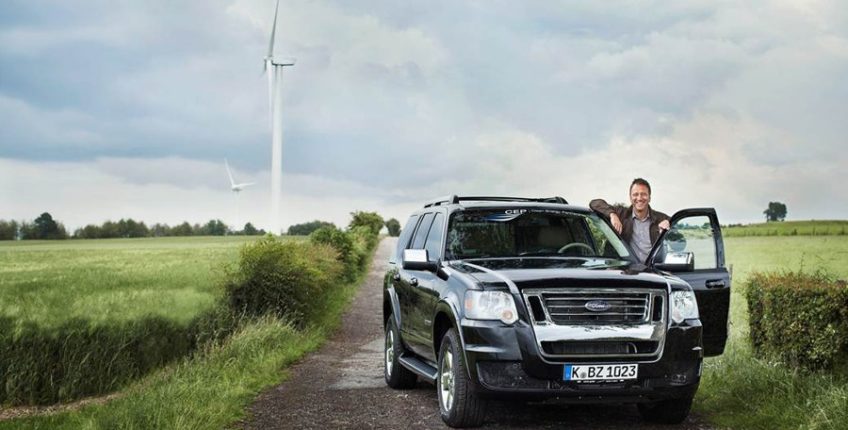Ford is a founding member of the Clean Energy Partnership (CEP) Berlin and as such, involved in the project since 2002. Goal of the third CEP phase that runs from 2011 to 2016 is the elimination of obstacles that are still present for the market introduction of fuel cell technology. Cost-benefit aspects and service life are of particular focus, as well as the efficiency and power density of the system.
When the first publically accessible hydrogen filling station opened in Berlin in 2005, Ford introduced three Ford Focus fuel cell vehicles into the project. In the meantime, one of these has been replaced with a Ford Explorer, equipped with the next generation of fuel cell technology. From the beginning, the vehicles have been in the hands of customers, with the goal of testing the everyday suitability of hydrogen mobility. In the interim, all vehicles were also modified from using 350 bar hydrogen technology to 700 bar tank system technology in order to increase the range and subsequently customer acceptance. The Ford vehicles deployed in the CEP have exceeded their originally estimated service life by a large margin and are highly cherished by their users due to their robustness and reliability.
Ford has been working on the development of fuel cell vehicles since 1994, and together with the companies Daimler and Ballard, is stakeholder in the Automotive Fuel Cooperation, headquartered in Vancouver. The developments within the CEP are lead by Ford’s European research centre in Aachen.
Funding Code
03BV2081
| Partner | Start of term | End of term | Funding amount |
| Ford-Werke GmbH | 01.04.12 | 30.09.16 | 1,628,063.36 € |
| 1,628,063.36 € |

